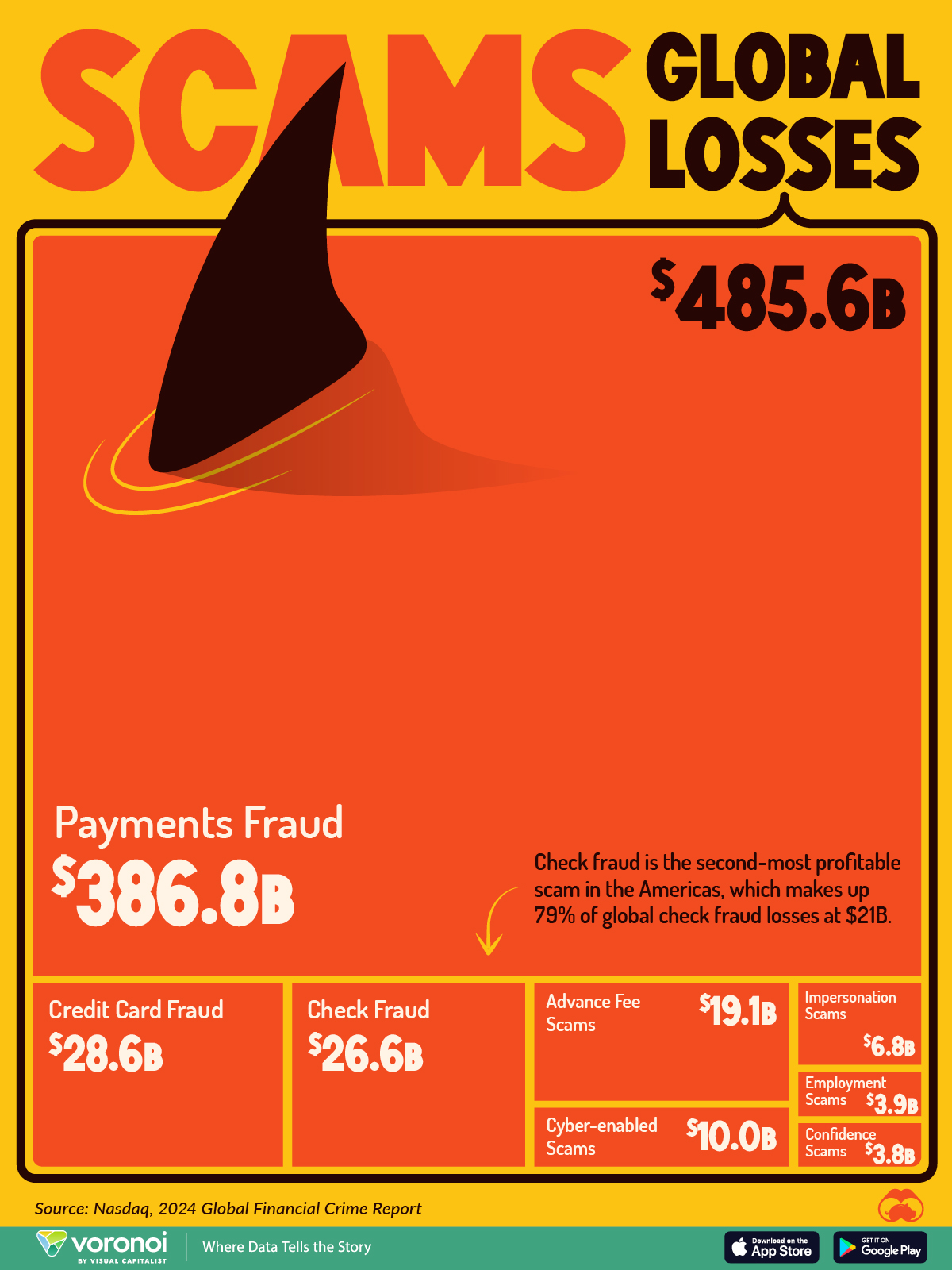![]()
See this visualization first on the Voronoi app.

Visualizing Global Losses from Financial Scams
This was originally posted on our Voronoi app. Download the app for free on iOS or Android and discover incredible data-driven charts from a variety of trusted sources.
Last year, financial scams led to almost half a trillion dollars in losses worldwide, roughly equal to the GDP of Singapore.
As fintech has advanced globally, cyber-criminals have exploited various platforms in complex attacks. Often, they will steal customers’ account information on digital payment systems and online banking sites as a highly lucrative form of attack.
This graphic shows the scale of financial losses from scams and schemes, based on data from Nasdaq’s Global Financial Crime Report for 2024.
The Most Common Types of Financial Scams
In 2023, there were $485.6 billion lost in total from financial scams, and below we break down the specific scams that generated the biggest losses:
| Type of Financial Scam/Scheme | Global Losses (USD) |
|---|---|
| Payments Fraud | $386.8B |
| Credit Card Fraud | $28.6B |
| Check Fraud | $26.6B |
| Advance Fee Scams | $19.1B |
| Cyber-enabled Scams | $10.0B |
| Impersonation Scams | $6.8B |
| Employment Scams | $3.9B |
| Confidence Scams | $3.8B |
| Total | $485.6B |
Payments Fraud the Top Financial Scam
Payments fraud makes up a staggering 80% of the total. This type of fraud occurs when payment methods are illegally manipulated to deceive or steal from a person or business.
One example of a key risk point for payments fraud are real-time payments. Here, fraudsters exploit payment systems through rerouting fund transfers. Along with this, cyber-criminals will use “banking trojans” as a primary weapon to hack account information. This type of attack lures users to click on a malicious PDF file, website, or app which steals information on a device.
Interestingly, a separate analysis showed that Brazil was the top country in the world for banking trojan scams, with 1.8 million attempted attacks over the course of June 2022 to July 2023.
Going further, business email compromise, a type of payments fraud, was the source of $6.7 billion in losses in 2023. These types of scams involve fraudsters masquerading as legitimate businesses to deceive unsuspecting customers into sending payments into fraudulent accounts.
Credit Card Fraud
Another key source of financial losses was credit card fraud.
In fact, one of the most common forms of this type of fraud is skimming, where an electronic device can be placed in an ATM which steals information in a cards magnetic strip. On average, skimming costs American consumers and financial institutions $1 billion annually.
The post Visualizing Global Losses from Financial Scams appeared first on Visual Capitalist.